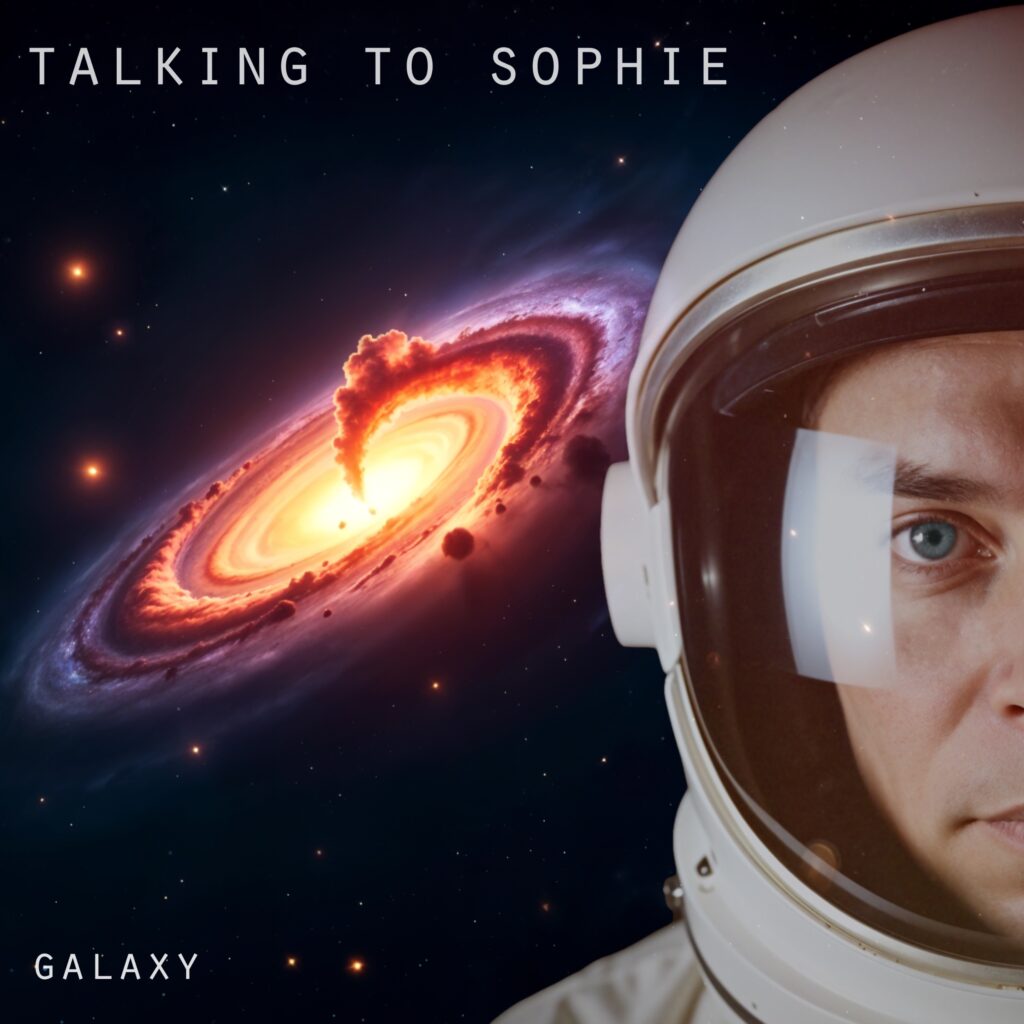
Hailing from Eberswalde, Germany, solo artist Talking To Sophie dropped “Galaxy” on April 14th, 2025— not your run-of-the-mill breakup song, this thing hits you deeply.
Visualise this: You’re cruising down a desert highway at midnight, nothing but stars above and endless road ahead. That’s the feeling “Galaxy” captures. It’s got these gnarly guitar riffs that’ll remind you of Tom DeLonge’s Box Car Racer days, mixed with some slick Rupert Holmes-style melodies. But don’t get it twisted – this ain’t no pop fluff. It’s a hardcore journey through loss and pain, wrapped up in a sound that’s both Blink-182 punk energy, and Death Cab For Cutie soul-searching. But the real star? Those vocals. Talking To Sophie ditches the typical screamo approach for this low, smoky delivery that’ll give you chills. It’s like they’re whispering their deepest secrets right into your ear. Every word feels like a punch to the heart, bringing back memories you thought you’d buried.
The coolest part? This whole thing was recorded in some old bakery turned DIY studio called “Big Birds Nest.” No joke – there’s an actual massive stork’s nest on top of the place. They even switched up their usual mic setup, going for a Shure SM7B instead of the Rode NT1000, just to nail that gritty, intimate sound. Trust us, when this track drops, you’re gonna feel like you’re right there in that bakery-turned-studio, with emotions so big they’re practically bursting through the walls.
Framed as a phantom road trip to a Flagstaff diner named Galaxy, the song stitches together fragments of grief and love after the loss of the artist’s son. This isn’t some weepy ballad though. It’s fresh and it’s moving, literally and figuratively. Sophie’s fighting through the pain, one mile marker at a time. You get these flashes of the good old days, then bam – a surge of “screw you, universe” energy. It’s beautiful and messy, just like real life.
“Galaxy” is a survival manual etched into a three-minute rock sermon. Talking To Sophie doesn’t only wear their heart on their sleeve—they’ve ripped it out, plugged it into a Marshall stack, and dared us to listen. This is how it’s done.
